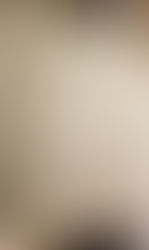European Researchers' Night at Trinity College Dublin
- Kathleen Miller

- Oct 1, 2019
- 2 min read
I have long considered the relevance of my research to a present-day audience, given that the construction of disease and its treatment in the early modern period can seem remarkably distant from current innovations in medicine and the treatment of illness. In September, however, I had an opportunity to share one facet of my understanding of early modern plague with a wide audience by participating in the European Researchers' Night event held at Trinity College Dublin.
What better way to share the subject of early modern plague writing than through the presentation of one of the defining seventeenth-century cures for the disease, Dr. Burges' Plague Water. Recorded in numerous print books and manuscripts throughout the seventeenth century and beyond, Dr. Burges' Plague Water was considered a valuable medicine against the disease, with many iterations of the recipe stating, "Keep this as your life above all worldly Treasure”.

Folger Shakespeare Library, Receipt book of Rebeckah Winche, V.b.366, pp. 8-9. Licensed under CC BY-SA 4.0.
In preparation for the event, I collected a number of unusual ingredients, including long pepper, rue and angelica. While I was not able to procure mithridate for the presentation and made the decision to leave muscadine out as well, the other ingredients offered a curious glimpse into what was involved in preparing an early modern plague recipe.
The home was frequently the first location for healing in times of illness during the early modern period, with women typically overseeing the task of delivering domestic medicine. I had originally envisioned preparing the concoction for attendees; however, the limitations imposed by the steps required to prepare the water, which included boiling the mixture, as well as the length of the four-hour event, meant a presentation of the ingredients and facsimiles of the recipe as it appeared in a range of print and manuscript sources was a more effective way to give attendees a glimpse into early modern medicine.

The components of a seventeenth-century plague cure.
The event featured a range of exhibits focused on science and related fields, with mine being the only table addressing early modern literature. Despite this, many attendees dropped by to examine the ingredients on display and to discuss with me the relative merits of an early modern approach to disease. Furthermore, I enjoyed brief opportunities to see the myriad directions other scholars' work was taking them in.




Comments